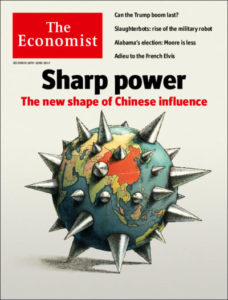 Recent changes ushered into U.S. foreign policy could end up being highly consequential and may even resemble the Truman moment, when over a short period America dramatically changed its views of the world, argues Ivan Krastev, the chairman of the Center for Liberal Strategies, a permanent fellow at the Institute for Human Sciences in Vienna and the author, most recently, of “After Europe.”
Recent changes ushered into U.S. foreign policy could end up being highly consequential and may even resemble the Truman moment, when over a short period America dramatically changed its views of the world, argues Ivan Krastev, the chairman of the Center for Liberal Strategies, a permanent fellow at the Institute for Human Sciences in Vienna and the author, most recently, of “After Europe.”
Two significant changes are likely to have staying power, he writes for The New York Times
- First, with [t]his administration, Americans have lost confidence in their exceptionalism. It’s not just the president but also the millennials (who predominantly oppose him) who no longer share the belief that America is an “indispensable nation” with a moral obligation to make the world safe for democracy. …
 Second, under the Trump presidency, rivalry with China has become the organizing principle of American foreign policy. Republicans and Democrats disagree on almost everything today, but one area where there seems to be effective bipartisanship is that America must change its policy toward China. Only a few lost souls in Washington continue to believe that China’s economic development will lead to a political opening…
Second, under the Trump presidency, rivalry with China has become the organizing principle of American foreign policy. Republicans and Democrats disagree on almost everything today, but one area where there seems to be effective bipartisanship is that America must change its policy toward China. Only a few lost souls in Washington continue to believe that China’s economic development will lead to a political opening…
“America’s anxiety about China is in my view a realization of the fact that China’s market-friendly, big-data authoritarianism is a much more dangerous adversary for liberal democracies than Soviet Communism ever was,” adds Krastev, an associate of the National Endowment for Democracy’s International Forum for Democratic Studies. But Europeans are unlikely to sign up for a replay of the Cold War, he concludes.
But European introversion and impotence guarantees an open door for Russian and, increasingly, Chinese influence, notes CEPA’s Edward Lucas:
Against this bleak background it is easy to despair. But it is worth remembering that the West survived the Cold War in worse shape than it is now. The USSR was a serious strategic adversary which controlled half of Europe and projected power all over the world. Russia is a nuisance not a threat. It succeeds mainly through bluff, not muscle. Transatlantic disunity is nothing new either. Europe shunned the U.S.-led cold war in Latin America, Africa, and Asia.







